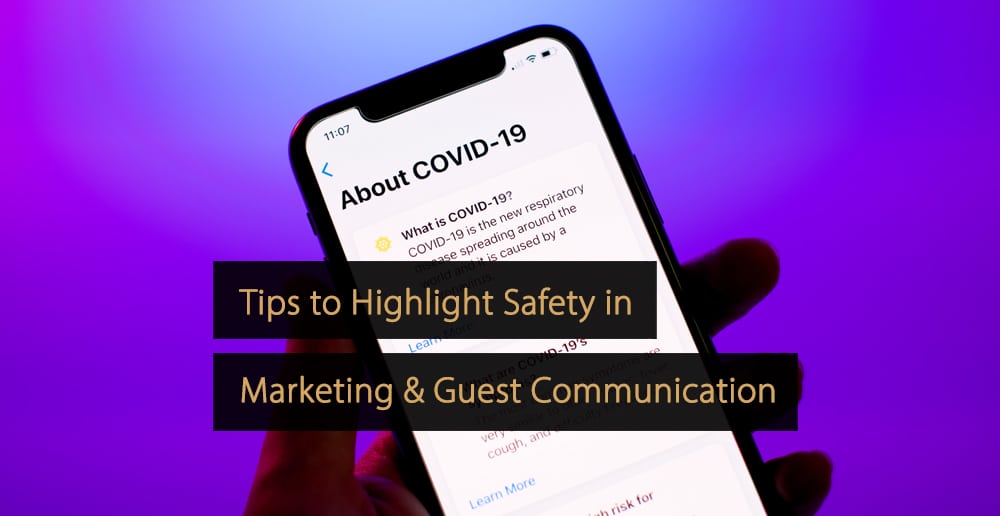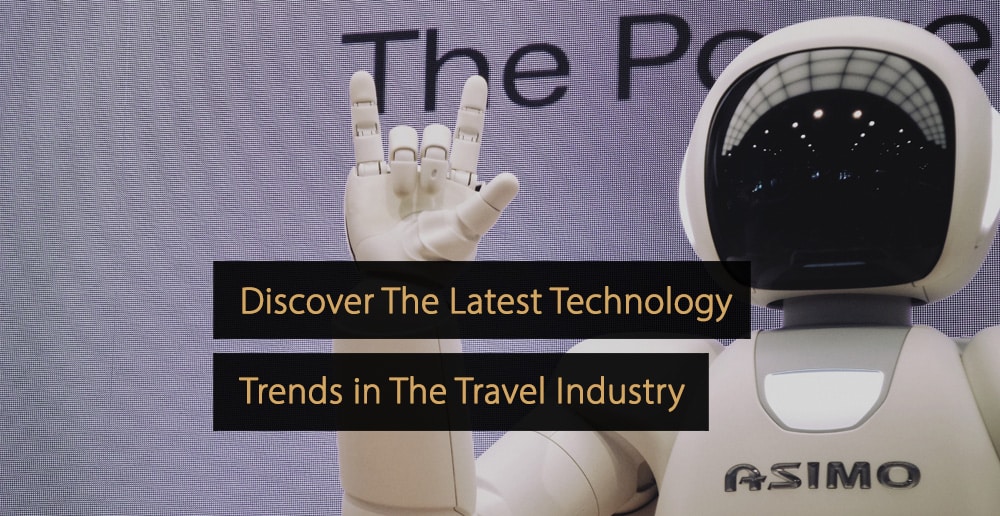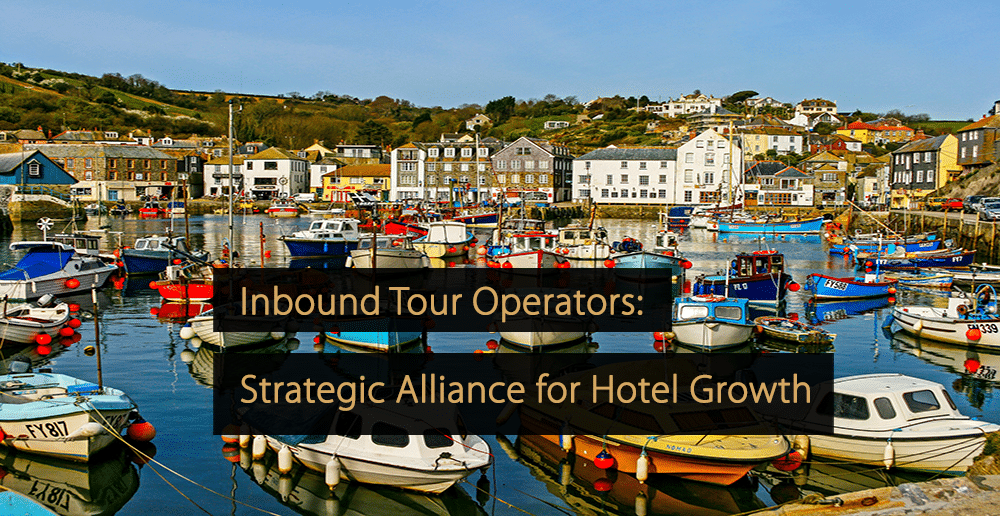Due to the COVID outbreak, the travel industry has been placed under an immense amount of pressure. This is the very same reason why travel and tourism professionals have needed to place a much greater emphasis on the concept of safety. How can such an approach be used with your ongoing marketing campaigns and guest communication? We provide tips on how to highlight safety in your messaging which responds to your customers’ new COVID safety needs.
Understanding the Fundamental Principles of Marketing in the Current Situation
Before discussing the ongoing role of safety in your communications, we need to appreciate the impact of marketing as a whole. Marketing is normally defined as how you are able to illustrate the core competencies of your firm. Here are some common intentions of any marketing strategy:
- To highlight the most attractive qualities of a firm.
- They establish a strong brand identity.
- To associate the organization with reliability and integrity.
- To attract new clients while ensuring that existing customers remain loyal.
Of course, you will also need to consider a handful of metrics, such as your target audience, their needs, and expectations. As such factors should be predicted in advance, a significant amount of research and analysis will be required.
Regarding marketing within the travel industry, a handful of additional niche metrics should also be identified. Some of these can include (but not be limited to) highly competitive rates, providing a host of transportation options, and partnering with relevant establishments (such as hotels and restaurants) to embrace a client-centered appeal.
However, we also know that the travel industry is fluid. The desires and requirements of clients are bound to change over time. Although some of these trends can be cyclical (such as offering deals around the holidays or special bulk travel packages during the summer), others are decidedly unpredictable. You will invariably lose customers if your organization cannot proactively adapt to drastic industry shifts.
Appreciating the New Role that Safety Will Play Within the Travel Industry
Perhaps the most confounding factor associated with the current global pandemic is the simple fact that travelers have helped spread the virus. Thus, it was unsurprising when many nations closed their borders to foreign travelers and holidaymakers. Now that some of these restrictions have begun to ease, you need to be able to place a greater emphasis on safety and hygiene than ever before.
It is already logical that travel-related businesses must follow the rules outlined by governmental regulations (such as social distancing measures and the provision of proper hygienic products). Although most firms have taken the appropriate steps, clients might not be aware of these changes. This is why communication via marketing is once again critical.
Clarity and Insight: Embracing Efficient Levels of Communication
It is impossible to put a price on safety. Whether dealing with a first-class business traveler or an individual flying coach to spend time with his or her family, security is paramount. Let us also make it a point to note that many customers will still be wary of traveling even if they are now permitted. We are not only referring to services directly related to travel (such as cruises, airlines, and car rentals). Ancillary firms must likewise adopt appropriate communication measures. These include, for example, hotels, restaurants, and firms related to tourism, such as travel agencies.
Travelers who feel that their health and safety will not be jeopardized are likelier to take subsequent steps, such as confirming a reservation or engaging with a customer service representative.
This brings us to the crux of our article. How can your travel firm clearly and effectively communicate the steps taken to guarantee guests’ safety during their journey? Let us now look at five key takeaway points that could make the difference between a satisfied client and one who decides to look elsewhere, perhaps to one of your main competitors.
Five Professional Suggestions to Communicate the Safety-Related Steps You Have Taken
1. Leverage the Presence of Your Website Homepage
Visibility is key if you hope to convey the safety-related steps already taken. This is why it is important to modify the information on your website’s homepage to highlight how your operations have been affected. You can also choose to place an internal link that redirects visitors to a page solely dedicated to safety and health information related to COVID. Here are some examples of steps that may be listed:
- Mandatory two-meter distances between travelers.
- The obligation to wear face masks while in transit.
- The presence of sanitary and/or hygienic wipes to prevent infections.
2. Reiterate the Steps You Have Taken During the Reservation Process
The information outlined above should likewise be stressed when a client confirms a reservation. Not only will this again reiterate your commitment to safety, but it can also place the client’s concerns at ease. As a result, he or she will be more likely to complete the booking. It is also wise to provide a clear option if they wish to discuss their safety questions with a customer service representative. This helps build trust and highlight your firm’s transparent nature.
3. Examine and Modify the Description of Your Travel Firm Across Pivotal Distribution Channels
Keep in mind that a growing number of travelers are utilizing websites such as Booking.com and Travelocity to compare and contrast different services. It is, therefore, crucial that you modify any information within these and other third-party portals accordingly. If your safety updates are not posted, the visitor might assume you have not taken the appropriate steps.
4. Provide Safety-Related Information Within Pre-Arrival and Confirmation Emails
Most travel firms will email their clients to confirm their reservations and provide additional information, such as QR codes or end-user agreements. Therefore, it makes perfect sense to use this as another opportunity to communicate the steps taken to address COVID-related safety concerns. Here are a handful of examples of what might be contained within such an email:
- The health and safety regulations associated with the destination in question.
- The opportunity to choose hands-free payment methods.
- Express check-in services.
- Any additional pre-boarding recommendations (such as arriving earlier due to anticipated delays).
Customers can therefore remain informed every step of the way.
5. Offer On-the-Spot Safety Information to Reinforce Your Commitment
Finally, any on-site representatives should effectively communicate the safety measures which your firm has taken. This will give clients greater assurance and remind travelers that your firm has prioritized their health.
Although the global pandemic has placed great stress on the travel sector, firms can still adapt to provide their customers with superior levels of service while maintaining safety protocols. Still, effectively communicating your efforts is key to maintaining client loyalty over time. Please feel free to refer back to the suggestions highlighted throughout this article if you hope to satisfy your travelers while remaining well ahead of the competition.
More Tips to Grow Your Business
Revfine.com is the leading knowledge platform for the hospitality and travel industry. Professionals use our insights, strategies, and actionable tips to get inspired, optimize revenue, innovate processes, and improve customer experience.Explore expert advice on management, marketing, revenue management, operations, software, and technology in our dedicated Hotel, Hospitality, and Travel & Tourism categories.
This article is written by:
Hi, I am Martijn Barten, founder of Revfine.com. With 20 years of experience in the hospitality industry, I specialize in optimizing revenue by combining revenue management with marketing strategies. I have successfully developed, implemented, and managed revenue management and marketing strategies for individual properties and multi-property portfolios.









Wonderful information!
Taking safety precautions in guest communication is the thing that we should follow without any gap. thanks for sharing the information.